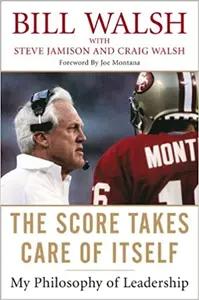The Mathematics of Politics
By E. Arthur Robinson
Category
MathRecommended by
"The Mathematics of Politics" by E. Arthur Robinson is a groundbreaking exploration of the intricate relationship between mathematics and politics. In this concise and enlightening book, Robinson highlights the essential role that mathematical principles play in understanding and analyzing political phenomena.
By dissecting political systems and processes, Robinson demonstrates how mathematical concepts such as game theory, voting theory, and statistical analysis can illuminate the complexities of political decision-making. Through clear and comprehensive explanations, readers gain a deeper understanding of electoral systems, political ideologies, and policy formulation.
Robinson draws on case studies from around the globe to demonstrate how mathematical models can shed light on the dynamics of power, coalition formation, and the behavior of individuals and groups within political systems. From understanding the implications of gerrymandering to analyzing the strategic maneuvers of political parties, this book equips readers with the tools to interpret and evaluate political phenomena through a mathematical lens.
"The Mathematics of Politics" also explores the ethical implications of utilizing mathematical models in politics, addressing issues of fairness, representation, and accountability. Robinson argues that by integrating mathematical thinking into the political process, policymakers and citizens can make more informed decisions and foster a more equitable and responsive democracy.
With its concise and precise approach, "The Mathematics of Politics" offers a thought-provoking analysis that will be highly valuable to students, scholars, and anyone interested in the intricate relationship between mathematics and politics. By bridging these two seemingly disparate fields, Robinson presents a compelling case for the transformative power of mathematics in shaping political landscapes.
By dissecting political systems and processes, Robinson demonstrates how mathematical concepts such as game theory, voting theory, and statistical analysis can illuminate the complexities of political decision-making. Through clear and comprehensive explanations, readers gain a deeper understanding of electoral systems, political ideologies, and policy formulation.
Robinson draws on case studies from around the globe to demonstrate how mathematical models can shed light on the dynamics of power, coalition formation, and the behavior of individuals and groups within political systems. From understanding the implications of gerrymandering to analyzing the strategic maneuvers of political parties, this book equips readers with the tools to interpret and evaluate political phenomena through a mathematical lens.
"The Mathematics of Politics" also explores the ethical implications of utilizing mathematical models in politics, addressing issues of fairness, representation, and accountability. Robinson argues that by integrating mathematical thinking into the political process, policymakers and citizens can make more informed decisions and foster a more equitable and responsive democracy.
With its concise and precise approach, "The Mathematics of Politics" offers a thought-provoking analysis that will be highly valuable to students, scholars, and anyone interested in the intricate relationship between mathematics and politics. By bridging these two seemingly disparate fields, Robinson presents a compelling case for the transformative power of mathematics in shaping political landscapes.
Share This Book 📚
More Books in Math

Factfulness
Hans Rosling

Fooled By Randomness
Nassim Nicholas Taleb

Gödel, Escher, Bach
Douglas R. Hofstadter

Infinite Powers
Steven Strogatz

The Model Thinker
Scott Page

The Princeton Companion to Mathematics
Timothy Gowers

The Signal and the Noise
Nate Silver

A Mathematician's Apology
G. H. Hardy

A Mathematician's Lament
Paul Lockhart

Birth of a Theorem
Cédric Villani

Calculus Made Easy
Silvanus P. Thompson

Euclid's Elements
Euclid

How Nature Works
Per Bak

How To Lie With Statistics
Darrell Huff

Math, Better Explained
Kalid Azad

Mathematician's Delight
W. Sawyer

Mathematics
A.D. Aleksandrov

Naked Statistics
Charles Wheelan

Probability, Random Variables and Stochastic Processes
Athanasios Papoulis

Probability Theory
S.R.S. Varadhan

Q.E.D.
Burkard Polster

Statistical Consequences of Fat Tails
Nassim Taleb

Statistical Models
David A. Freedman

The Blank Swan
Elie Ayache

The Compleat Strategyst
J. D. Williams

The Elements of Statistical Learning
Trevor Hastie

The Mathematics of Politics
E. Arthur Robinson

The Perfect Bet
Adam Kucharski

The Principia
Isaac Newton

The Science of Conjecture
James Franklin
Popular Books Recommended by Great Minds 📚

High Growth Handbook
Elad Gil

Who We Are and How We Got Here
David Reich

Behind the Cloud
Marc Benioff

Antifragile
Nassim Nicholas Taleb

Superforecasting
Philip Tetlock

The Innovators Dilemma
Clayton Christensen

The Outsiders
William Thorndike

Measure What Matters
John Doerr

The Holy Bible
Various

Wanting
Luke Burgis

The Coddling of the American Mind
Greg Lukianoff & Jonathan Haidt

Against The Gods
Peter Bernstein

Crossing the Chasm
Geoffrey Moore

The Rational Optimist
Matt Ridley

Poor Charlie's Almanack
Charlie Munger

Sapiens
Yuval Noah Harari

The Fountainhead
Ayn Rand

The Network State
Balaji Srinivasan

Homo Deus
Yuval Noah Harari

Give and Take
Adam Grant

The Score Takes Care of Itself
Bill Walsh

Becoming Steve Jobs
Brent Schlender

Skin In The Game
Nassim Taleb

Economics in One Lesson
Henry Hazlitt

The Bitcoin Standard
Saifedean Ammous

Influence
Robert Cialdini

Titan
Ron Chernow

Destined For War
Graham Allison

Hillbilly Elegy
J.D. Vance

Behave
Robert Sapolsky